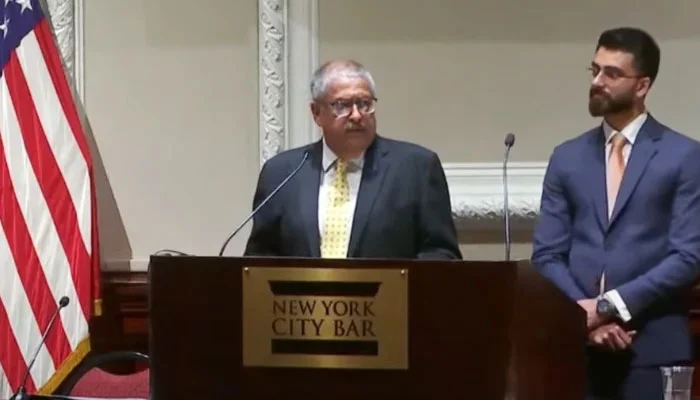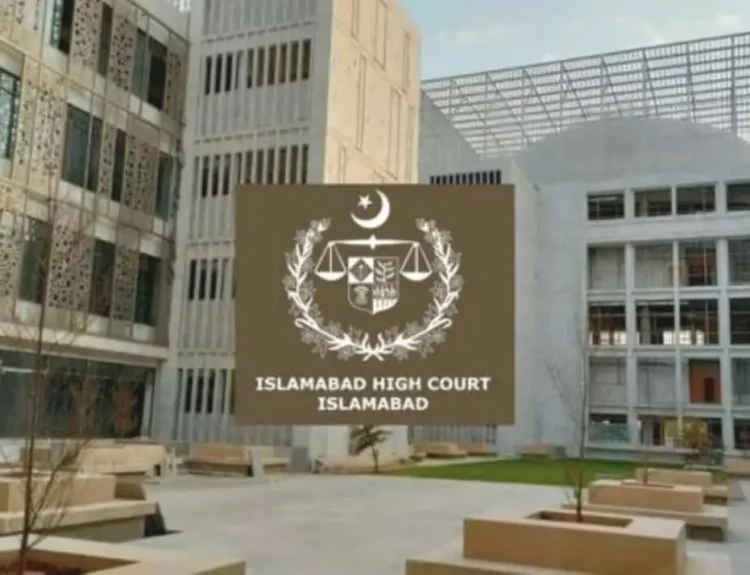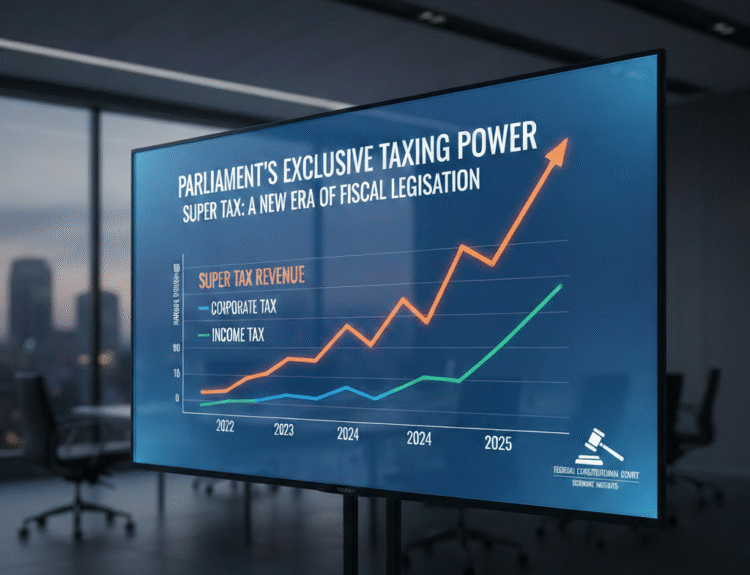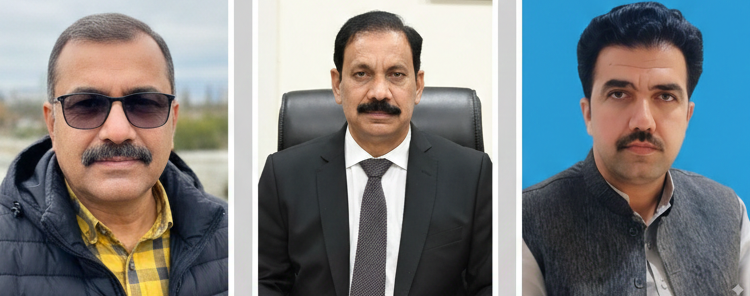While addressing an event of the New York City Bar Association the other day, Justice Athar Minallah of the Supreme Court of Pakistan has stressed the need for the courts to remain functional whenever the country faces a threat regarding the imposition of martial law.
The News reported Pakistan has faced three martial laws — 1958–1971, 1977–1988, 1999–2008 — spanning decades since its independence in 1947.
“I wish every time there’s a threat of martial law, the courts are open,” the top court’s judge said while addressing an event of the New York City Bar Association on Wednesday.
The judge’s remarks came in response to a question, when a participant in the event asked him why he opened the Islamabad High Court (IHC) on April 9, 2022, at midnight — the day when former prime minister Imran Khan was ousted from power.
The judge, who served as the IHC Chief Justice from 2018-2022, told the participant that when he was appointed to the IHC’s helm, he had issued a circular that the high court would operate 24/7.
The jurist noted that he had set a procedure that anyone could file a petition at any time, which would then be sent to the then-IHC CJ on WhatsApp — whether it be 3am or 4am.
“1,400 benefited from that circular. Nobody knows about them because they were not political people, they were ordinary people. Only the Islamabad High Court did that. The high court was open for everyone,” Justice Minallah said.
He also clarified that the media reports were wrong when they ran the news that he had arrived at the high court. “I was in my pyjamas […] when I was informed that Supreme Court Bar Association President Ahsan Bhoon wants to file a petition. But all petitions were frivolous and I didn’t pass any order.”
Justice Minallah added that while he was at home, a private television channel was broadcasting that he had reached the high court and was lamenting over this development.
“My wife told me this […] and I said, ‘really’?” He added that if he had passed any order, people could question his integrity, but he did not resort to any such move. “Despite that, a political narrative was created.”
“[A private television] channel created an impression that martial law is going to be imposed,” the senior jurist said, about the news being aired amid the session on the no-confidence motion against then-PM Khan in April 2022.
“I wish every time there’s a threat of martial law, the courts remain open. I wish they were open on July 5 when General Ziaul Haq was removing an elected prime minister. I wish they were open on October 12 when General Pervez Musharraf had thrown out an elected prime minister.”
“If anyone had attempted to remove unconstitutionally an elected prime minister till then, Imran Khan, then it would have been a test of the Islamabad High Court, whether it stands to uphold the Constitution or not.”




